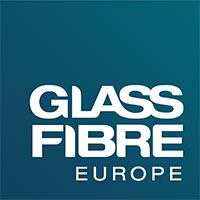NEPSI & R.C.S.
NEPSI & R.C.S.
Glass Fibre Europe is a signatory of the Social Dialogue Agreement (2006) aiming to protect workers from health risks related to exposure to R.C.S.
In brief
Crystalline silica is an essential component of materials which have an abundance of uses in industry and are vital in many products and objects we use every day. Although crystalline silica is ubiquitous in nature, the inhalation of fine dust containing a proportion of it may constitute a hazard that is limited to the workplace. NEPSI is a multisectoral social dialogue agreement which brings together workers and employers to protect employees occupationally exposed to Respirable Crystalline Silica (R.C.S.) generated by a work process at workplace.
Why is it important
Crystalline silica (Quartz sand) is the main mineral raw materials used to produce glass fibres. Therefore, Glass Fibre Europe decided to be part of NEPSI.
Glass Fibre Europe is proud to share that in 2021 100% of its members’ installations have reported to NEPSI and that 100% of the workers potentially exposed to R.C.S. are covered by a risk assessment and all the sites have implemented technical measures to reduce generation/dispersion of fine R.C.S particulates at source.
Note: While crystalline silica is the main mineral raw material of CFGF glass composition, there is no crystalline silica present in the glass as the melting process transforms the mineral raw materials into the substance “glass”.
Our view
Considering that the exposure to R.C.S. can be controlled, the industry is committed to take appropriate measures for improving the working conditions. Through NEPSI, a comprehensive set of guidance and assessments that address the minimisation obligations have been developed, taking into account the wide diversity of industrial circumstances and the best ways to address them with specific sectoral expertise.
Supporting documents

